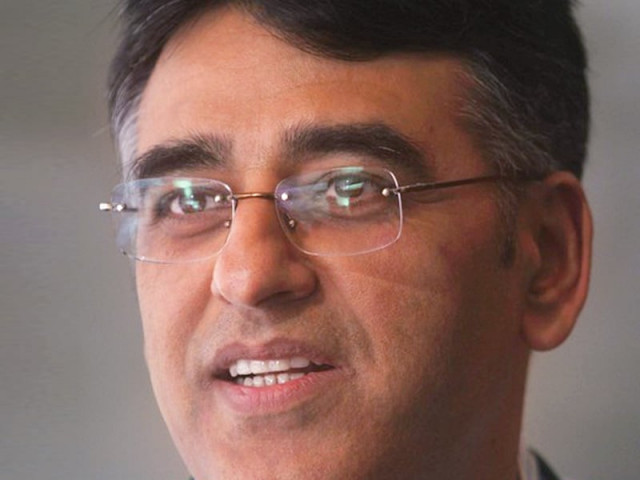Unpacking Asad Umar’s political resurrection
Considered Imran Khan’s go-to man for getting things done today, a de facto deputy Prime Minister

Asad Umar. PHOTO: FILE
As far as political comebacks go, none has been more profound than the spectacular fall and rise of Asad Umar. One year ago, he appeared alone in front of the firing squad that is the Pakistani press to announce his resignation. Days before his political assassination, I interviewed him in New York City, right after his meetings with the IMF. He genuinely had no idea he was about to be fired when he would land back in Islamabad. He refused another cabinet position but was gracious in his exit, showing loyalty to Naya Pakistan’s cause and empathy for the new finance team.
Today, Asad Umar is everywhere. He’s leading Pakistan’s response to the biggest crisis the Indian Subcontinent has faced since Partition, Covid-19. He chairs the National Command and Operations Centre (NCOC), a body that comprises provincial leaders, federal ministers and military generals to design and deliver a ‘whole government’ response to Covid-19. He’s also quietly leading the charge on reforming the 18th amendment, NAB ordinance and deals with Independent Power Producers (IPPs).
In short, Asad Umar is Imran Khan’s go-to man for getting things done today, a de facto deputy Prime Minister, clearly punching above the weight of his planning ministry portfolio. On the surface, this appears to be a reward for his loyalty and competence, but scratch beneath the surface and this signals a fundamental paradigm shift in Imran Khan’s governance model and political calculations. For the first 18 months, PTI was in reactive governance mode, paralysed like a deer caught in headlights — fire-fighting an economy in crisis, an opposition up in arms about accountability and a ferocious press that was hunting for blood (ironically, Asad Umar was their first scalp).
Meanwhile, it was PTI’s ideological voter that was bleeding. The performance of the government left much to be desired, but they couldn’t even recognise the faces that were leading the party and decision-making of the government. Making one compromise after another, whether it was with coalition partners or the boys, ideological voters could barely recognise the party they had voted for. “Imran Khan will snap out of this,” shared one disheartened ideological voter, close to the PM. “There’s no point of being in government if we’re going to make so many compromises.”
It seems that Imran Khan has snapped back and his weapon of choice is Asad Umar. In the last three months, we have seen a spectacular pivot in the confidence of a government which, according to the opposition and media, was going to be booted out last August and then again during Maulana’s dharna and then again through in-house change earlier this year.
Imran Khan is pursuing accountability within his own party while simultaneously frustrating any deals the opposition was busy pursuing with the boys. So far, he’s defied the media narrative around PTI’s performance by successfully protecting Pakistan’s fragile healthcare system and economy from collapsing during Covid-19. Meanwhile, he’s electrifying his base by bringing back Asad Umar, the beating heart of the ideological wing of the party. In short, Imran Khan has decided that he’s going to govern and leave government on his own terms.
“What do you want your legacy of public service to be?” I asked Asad, early in his term as finance minister. His answer was about fighting elite capture of public policy and helping the most vulnerable in society; the poor, women and minorities. That would explain why Imran Khan is betting the house on Asad. And if they lose the house together, at least it was a worthy wager.
Published in The Express Tribune, May 3rd, 2020.
Like Opinion & Editorial on Facebook, follow @ETOpEd on Twitter to receive all updates on all our daily pieces.














COMMENTS
Comments are moderated and generally will be posted if they are on-topic and not abusive.
For more information, please see our Comments FAQ